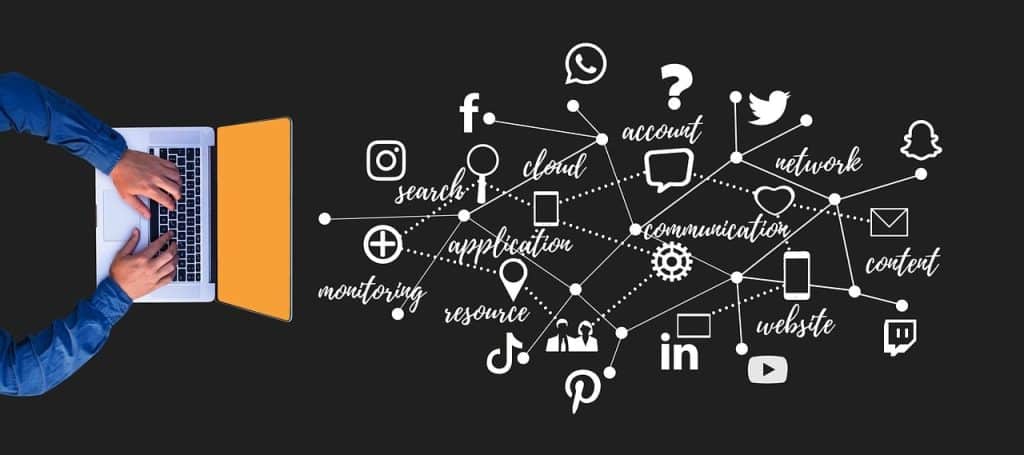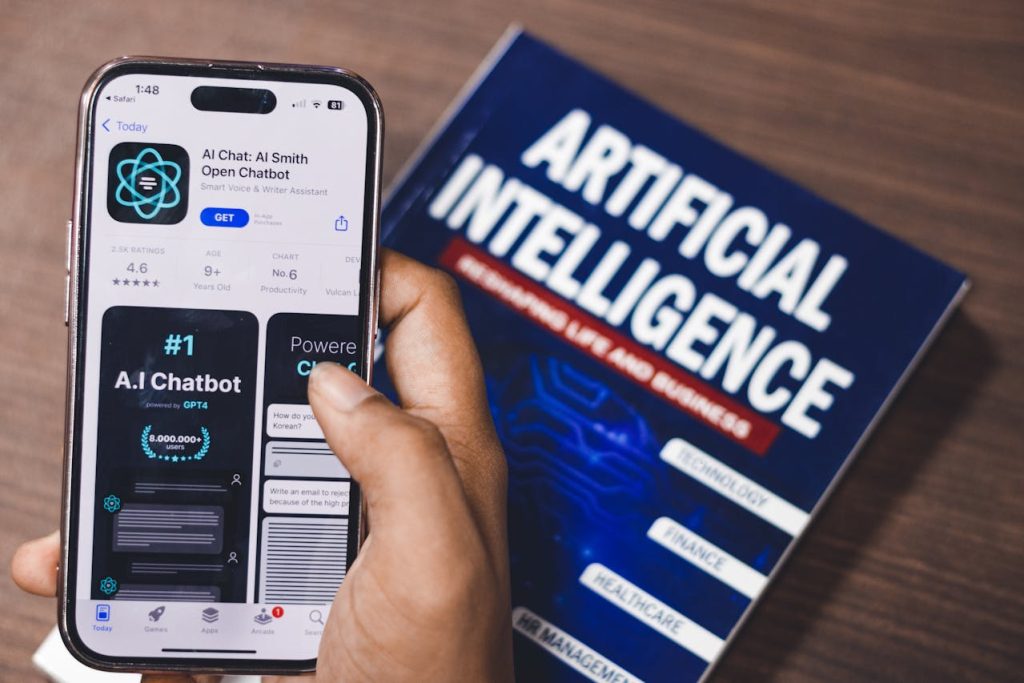World is ever changing. In the current era changes happen quicker than ever, thanks to AI. This tech has transformed how businesses operate and make money. Companies use AI to work more efficiently, save time, and get better results.
AI, machine learning, and generative AI play key roles in this shift. They help marketing teams do their jobs better by automating tasks and improving campaigns. With AI, marketing becomes more personal, more creative, and more effective.
But, not all marketing teams are taking full advantage of AI. Many have yet to set a solid plan for AI use. To keep up, marketing teams need to learn new skills and embrace AI more strategically.

Key Takeaways
- AI has transformed the marketing landscape, enabling businesses to drive efficiency, save time, and improve ROI.
- Advancements in AI, ML, and generative AI have empowered marketers to automate repetitive tasks and optimize campaign results.
- Marketing is one of the business functions where AI will have the most financial impact, enabling personalization, content creation, and data analysis.
- Many marketing departments still lack a coordinated, strategy-focused approach to implementing AI, and there is a need for developing competencies and upskilling.
- The effective use of AI in marketing can provide a significant competitive advantage by enabling personalized experiences at scale.
Introduction to AI in digital Marketing
In today’s fast-changing world, AI in digital marketing plays a huge role for business. It helps them do things faster, save time, and work more efficiently. This makes this technology a big help.
The Need for AI in Digital Marketing
Marketing teams have many tasks, like running big campaigns and handling lots of data. To be the best, they need to spend more time on smart planning and creative ideas. They should focus on serving their customers better. This shows why the need for AI in digital marketing is clear.
AI’s Impact on Marketing Efficiency and ROI
AI lets digital marketing marketing teams do better by using smart machines for boring work and improving old ways to measure results. With AI, they can see the true worth of their work, spot trends, and get advice on how to improve. Using AI means marketing checks are quicker and more accurate. This helps in making smarter choices and getting a better return on ads (ROI).
AI for Advertising and Targeting
Artificial intelligence (AI) has changed the world of advertising and targeting. Facebook and Google are using AI. This technology helps marketers reach thousands of people with ads designed just for them. It also measures how well the ads work and makes them better over time.
Audience Segmentation and Predictive Analytics
AI can group customers into very specific categories. This is based on things like age, gender, what they make, and what they like. Then, AI predicts which group is most likely to buy a product. It makes ads that feel personal to that group.
This way of splitting up customers and making predictions has really helped campaigns. Businesses make ads that really speak to people. They see better results and make more money from their ads.
AI-Driven Ad Platforms: Facebook and Google
Facebook and Google are leading the way with AI in ads. They use complex AI to understand what people like online. Then, they show ads that match those interests.
Facebook has ads that change depending on who’s seeing them. Google has ads that seem to know what you need before you do. This shows how powerful AI in ads can be.
The real magic happens when AI is part of a larger marketing plan. It should help with many digital marketing tasks, not just making ads.
AI in Public Relations
AI is now crucial in public relations (PR). It helps marketers find key voices, build strong relationships, and create engaging messages. With AI, we can handle today’s PR challenges better and faster.
Identifying Influencers and Cultivating Relationships
AI tools search through social media and online worlds to find people and groups that match a brand’s audience and values. By doing this, we can spot the top influencers and cultivate relationships to boost our message and interaction.
AI-Generated Influencers and Chatbots
AI-generated influencers and chatbots have changed PR too. With AI, brands can make digital personalities, such as the famous Lil Miquela. These AI creations gain followers and help brands reach people in fresh, low-cost ways.
AI for Press Releases and Messaging
AI doesn’t stop at finding influencers. It also helps with making press releases and messaging better. AI systems can find the best media outlets, improve search results, and do personalized outreach. This lets PR pros focus on big plans.
Using AI in PR shows great promise. It makes us more agile and helps us stand out in a noisy media space. By weaving AI into our PR work, we can boost our brand, connect with important influencers, and share messages that truly engage our audience.
How is AI Used in Marketing? Content Creation and Optimization
Content is key in today’s marketing. It helps build brand image, shows leadership, and boosts sales. Thanks to artificial intelligence (AI), we’ve changed how we create and use content. It brings efficiency, personal touches, and a smarter strategy.
AI for Content Strategy and Viral Content
AI boosts everything in content marketing, from plans to actions. It looks at tons of data to understand what users like and how they interact. This helps guess if content will go viral. With AI’s help, we can make content that fits our audience’s interests better. That means it’s more likely to grab their attention and meet our goals.
Also, AI can recommend content for users based on what they enjoy. It sees patterns to suggest what they might like next. This method keeps our audience engaged with content that feels right for them. It’s a way to be a go-to source for trustworthy information.
BuzzFeed’s AI-Driven Content Approach
BuzzFeed shows what AI can do in content marketing. They use AI in every step, from guessing how well an article will do to automatically publishing it. This includes picking keywords, putting content in categories, and personalizing it.
Integrating AI in content creation and editing helped BuzzFeed work more efficiently and connect better with readers. Their use of AI is a big part of their success. It shows the great benefits of using AI to boost our marketing efforts.
But AI’s real strength in content marketing shines when it fits into a bigger strategy. By tracking and improving content and user reactions, we learn what works best. This data-focused plan lets us create content that really speaks to our audience and gets real results.
AI in Email Marketing
Email is a top tool in marketing today. To reach our audience well, we need AI. AI helps make our emails better with smart subject lines, perfect timing, and personal touches.
AI for Subject Line Optimization
The subject line is key in an email. AI-powered tools make this easy. They look at past data and what people like. Then, they create subject lines that grab attention and boost open rates.
Timing Optimization and Personalization
AI also finds the best time to send emails. It checks when people usually read emails. This helps our emails be seen right when they would interest the most.
Adding personal touches makes emails even better. By knowing what each person likes, we can send content just for them. This makes our emails more effective and wanted.
Email marketing always changes. But, with AI, we’re ready for what’s next. AI makes our emails smarter and more focused on our customers. This leads to better results and happy customers.
The Impact of AI on Marketing Roles and Skills
AI is changing the world of marketing. It changes the jobs and skills needed. We must see how AI affects marketing jobs and skills. We need to learn about AI and data, and get ready for a future led by data.
The Need for AI and Data Literacy
Using AI in marketing well means understanding what AI can do and how to apply it. Big companies might hire experts for this. But, smaller ones should help their current market teams learn more.
It’s key for marketing teams to know about AI and data. This way, they can use AI tools to their fullest. If they learn to love data, they can make better choices and be more innovative thanks to AI.
Upskilling for a Data-Driven Marketing Future
Marketing is getting more about data. So, marketers must keep learning and adapting. They need to get good at reading data, using machine learning, and predicting trends. This will help them make the most out of this technology.
By focusing on these areas, marketing teams can do really well in the future. They can use AI to work smarter, know their customers better, and get ahead in their markets.

AI Marketing as a Competitive Differentiator
Today’s marketing world is crowded and competitive. AI gives us a key edge. It allows us to offer personalized experiences broadly. This meets the changing desires of consumers.
Leveraging AI for Personalized Experiences
AI helps us know our audience better. We understand what they like and how they act. So, we can create materials and experiences that really speak to them. This makes our brands more unique and builds deep connections with customers.
The Five W’s of AI Marketing
We can use the “Five W’s of AI Marketing” to make AI really work for us. This system helps us understand our who (our audience), offer the most relevant what (content and deals), and pick the best when and where to interact.
Then, we get to really know the why behind what our customers do. This big-picture way of using data leads to making customers happy, growing our business, and standing out from the competition.
Challenges and Considerations in AI Marketing
The marketing world is getting a big upgrade with the use of artificial intelligence. But, we must talk about the challenges AI brings, especially around data privacy and ethics. Using AI in marketing asks hard questions about collecting, using, and keeping customer data safe. Marketers need to make sure they’re following the rules and telling their customers clearly how they’re using their data.
Data Privacy and Ethics Concerns
Working with customer data is a key part of AI marketing. But, it needs to be handled in the right way. People care a lot about their privacy now. They want to know and control how their data is used. Marketers have to be on top of these worries. They need to make sure their AI work follows the data protection laws and is only used for clear, valid reasons.
Overcoming Legacy Mindsets and Processes
Switching over to AI in marketing faces a big problem. That problem is old ways of thinking and doing things. Many teams are used to doing marketing the same way. They might be afraid of AI or not know what it can do because they’re used to doing things without it.
To beat this issue, marketing teams need to change their culture and skills to be more AI-friendly. This means encouraging learning and growth, teaching the team about AI, and showing them how it can make marketing better.
AI-Powered Marketing Automation
This article talks about how AI-powered marketing can make things easier and better. It deals with automating tasks like managing campaigns and collecting data. This means marketers can use their time and energy on bigger plans.
Automating Repetitive Tasks with AI
AI in marketing can do a lot of the boring, time-eating jobs. This lets marketing teams think more, create more, and plan better. AI helps with things like setting up campaigns, deciding budgets, and sorting through leads and customers.
AI for Real-Time Personalization
The article points out that AI can make customer experiences super personal, and in real-time. AI-driven systems study how customers act and what they like right now. Then, they tweak messages and offers to fit each person, making them more likely to engage and respond better.
The big win with AI in marketing is doing things better and smarter in many areas. It boosts efficiency and return on investment. Plus, it lets us be more creative, plan better, and focus more on customers.
The Future of AI in Marketing
The future of AI in marketing looks very bright. It might change how brands talk to their clients. Predictive analytics and anticipatory marketing are key. The same goes for AI-driven customer journeys.
Predictive Analytics and Anticipatory Marketing
With AI, marketers can predict what customers want better. This means they can satisfy needs before they’re even expressed. This will make sure every interaction is what customers want, making them stay loyal.
AI-Driven Customer Journeys
Soon, AI-driven customer journeys will be common. This is where AI tech guides the whole customer experience. It starts from discovering a brand to making a purchase, and even after. This personal touch will make customer relationships better and more valuable over time.
The future marketing blend human creativity with AI. Together, they make outstanding experiences for every customer. This will build loyalty and help brands stand out.
Conclusion
Throughout this article, we’ve seen how AI changes marketing. It uses machine learning and predictive analytics. This lets marketers work smarter, personalize more, and make better strategies.
But, to make AI really work in marketing, we need a solid plan. We must understand AI well, make our workplaces AI-friendly, and train our teams. This way, we can use AI the best way.
Looking to the future, we see AI and human creativity joining forces in marketing. Together, these tools can create amazing, personalized customer experiences. This will make customers loyal and help our brands grow. With AI, marketing will be more about understanding people’s needs quickly and clearly.
FAQ
What are the key applications of AI in marketing?
There are many ways AI is used in marketing. It does things like making ads more targeted, handling public relations, and creating better content. AI is also behind the emails you get from brands and some of the ways businesses automate their marketing. It helps with understanding who is seeing ads, predicting trends, finding the right influencers, and making messages feel personal. Plus, it lets companies know what to do based on solid data.
How is AI impacting the roles and skills required in marketing?
AI changes what’s needed in marketing jobs. It highlights the importance of understanding AI and data. To really use AI well, marketing teams must know what AI can do and how to use it to solve real issues. This knowledge is key to making AI work for businesses.
What are the key challenges and considerations in implementing AI-powered marketing strategies?
Using AI in marketing comes with challenges. Marketers have to think about things like keeping customer data safe and being ethical. They also need to get past old ways of doing things that might stop AI use. Overcoming these issues is important to benefit from AI in marketing.
How can AI provide a competitive advantage in marketing?
The article says that using AI well can give a big edge in marketing. It allows for making every customer experience personal, even with a large audience. Marketers can learn a lot about their audience. Then, they use this info to create messages and content that really speak to people.
What is the future of AI in marketing?
The article talks about what’s next for AI in marketing. It sees a future where AI predicts what customers want before they even know it. Brands could use AI to make every step of the shopping experience unique and fitting to each person. This kind of AI-driven effort is what the article sees for the future.

